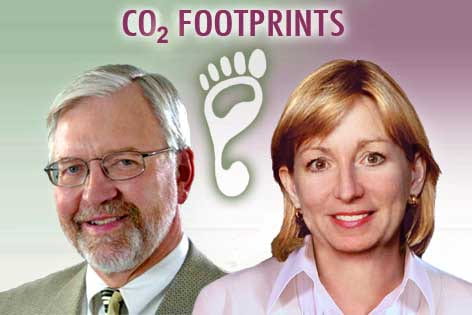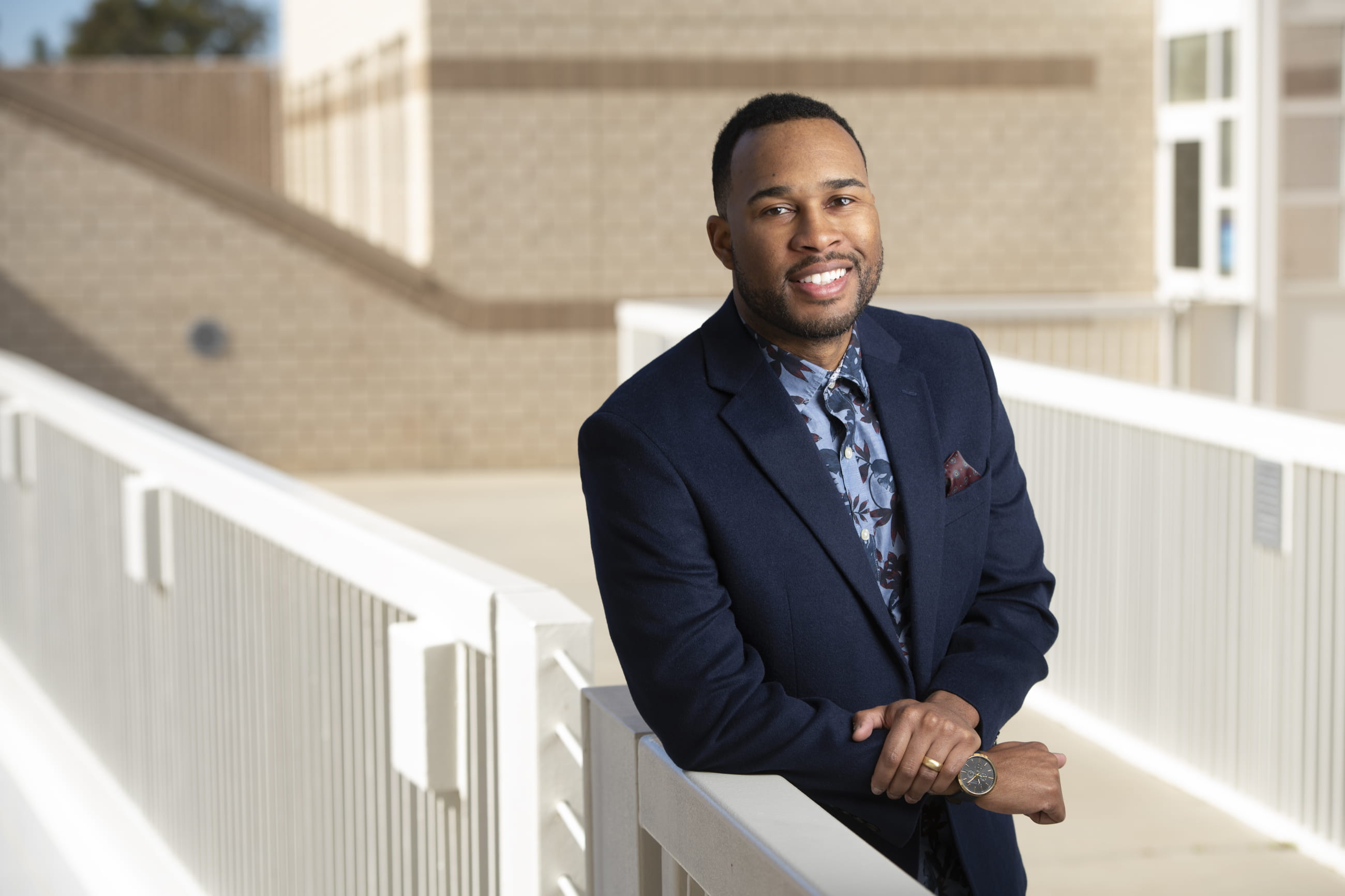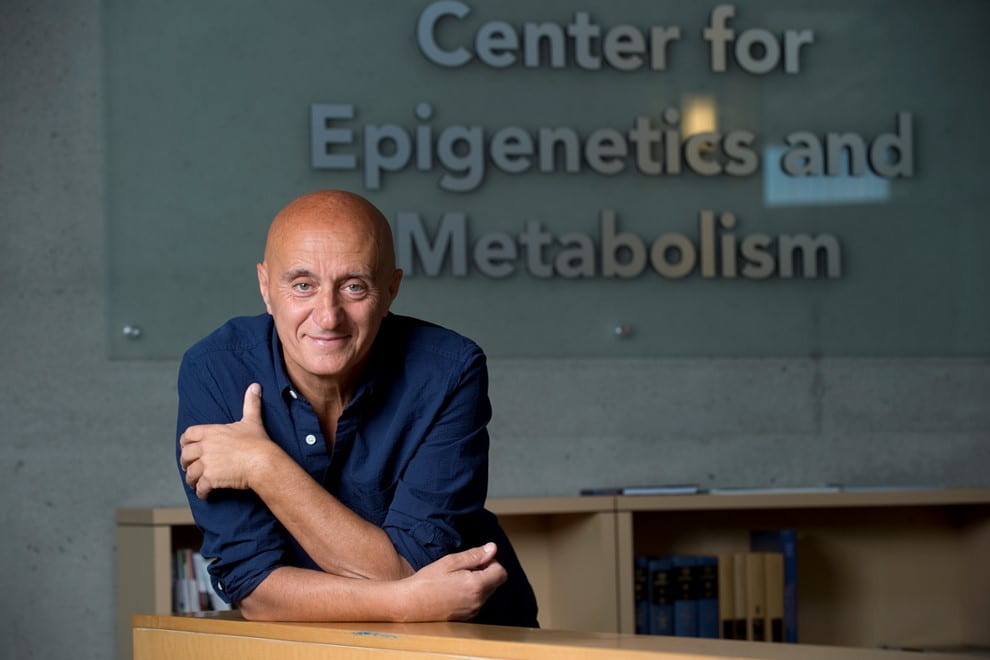UC VP Lapp taps UCI’s King of Green
Wendell Brase is already leaving his reduced-carbon footprint on the state: UC Irvine’s vice chancellor for administrative & business services has made his mark at UCI with green buildings, waste recycling, solar energy and more. And now, Katherine Lapp, executive vice president of the University of California, has asked Brase to chair the Climate Solutions Steering Group, which will focus on implementing carbon-neutral technology and solutions on UC campuses.

Wendell Brase is already leaving his reduced-carbon footprint on the state: UC Irvine’s vice chancellor for administrative & business services has made his mark at UCI with green buildings, waste recycling, solar energy and more. And now, Katherine Lapp, executive vice president of the University of California, has asked Brase to chair the Climate Solutions Steering Group, which will focus on implementing carbon-neutral technology and solutions on UC campuses. Lapp and Brase answer questions about this new endeavor.
Q. Why form this steering group now?
Lapp: The American College & University Presidents Climate Commitment, to which the University of California is a conspicuous signatory, is committed to carbon neutrality as soon as possible. UC climate researchers have found that even the relatively aggressive timetable established by the governor, the California legislature and the UC Regents may need to be accelerated. The university needs to pursue a leadership role in the state’s climate agenda.
Q. What do you expect this committee to do?
Lapp: This group will focus on moving solutions to implementation. I want it to explore large-scale renewable energy projects, evaluate emerging technologies that show promise over the next 5-10 years, and determine what UC can do to speed up this process. We also will look at financial models that may be needed to support UC’s migration to climate neutrality.
Brase: The Climate Solutions Steering Group is action-oriented. It will complement the UC Sustainability Steering Committee, which will continue to address broad sustainability policy and planning issues. The Steering Group will focus on achieving climate neutrality as soon as possible by finding ways to expedite the implementation of feasible, large-scale, carbon-reducing initiatives.
Q. Vice Chancellor Brase, this speaks very highly of work here at UCI. What inspired you to become a leader on this issue?
Brase: I’m attracted by the massiveness of the problem of reducing the university’s carbon footprint completely and by the scale of solutions that will be required. This problem is far larger and more challenging than anything we have ever faced in our careers. UC Irvine’s researchers are already at the forefront of this problem, and UC Irvine administrators, in collaboration with excellent colleagues from other California campuses, also will play a leadership role finding and establishing large-scale solutions that are feasible and sustainable.


